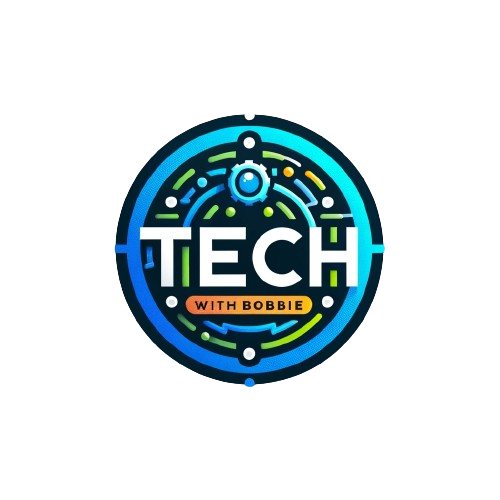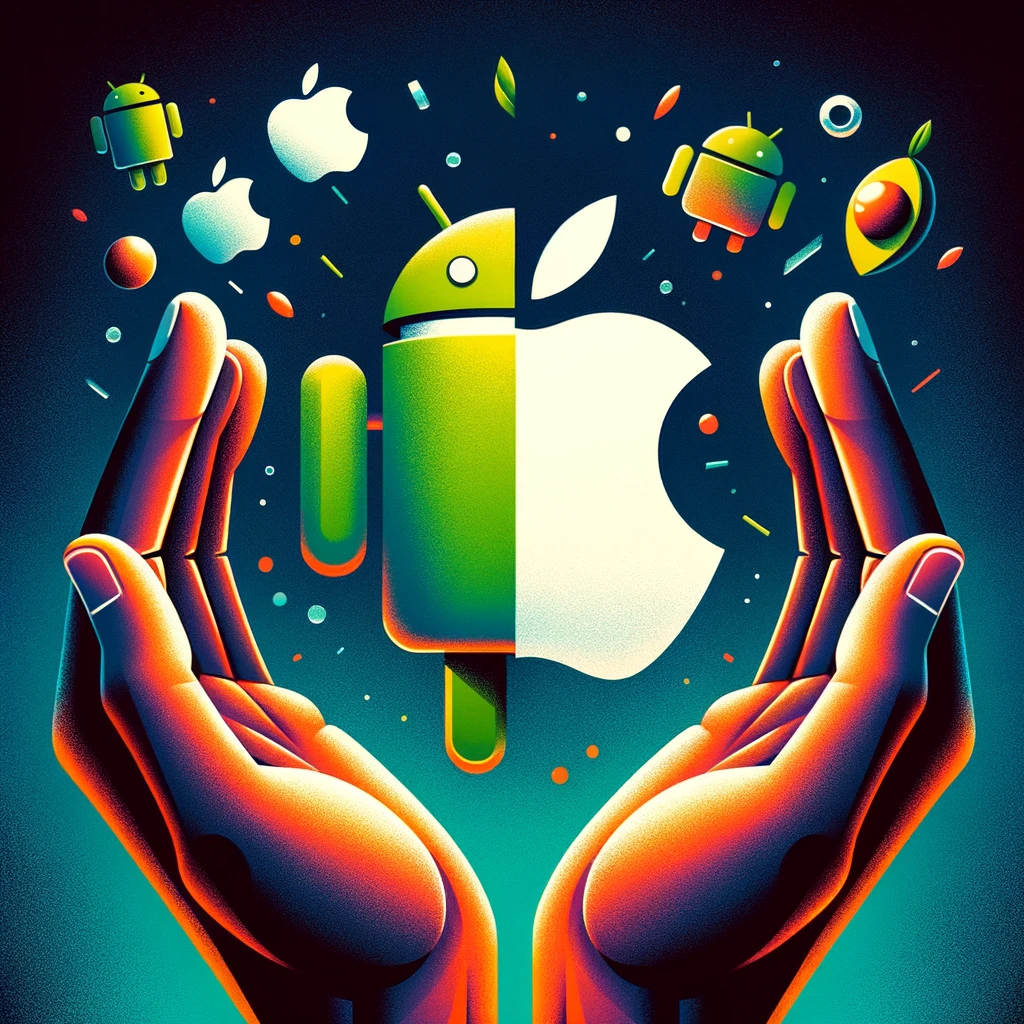Ever wondered which operating system reigns supreme in the battle of Android vs iOS platforms? iOS? This in-depth analysis will delve into the heart of this tech rivalry, uncovering the strengths and weaknesses of each platform.
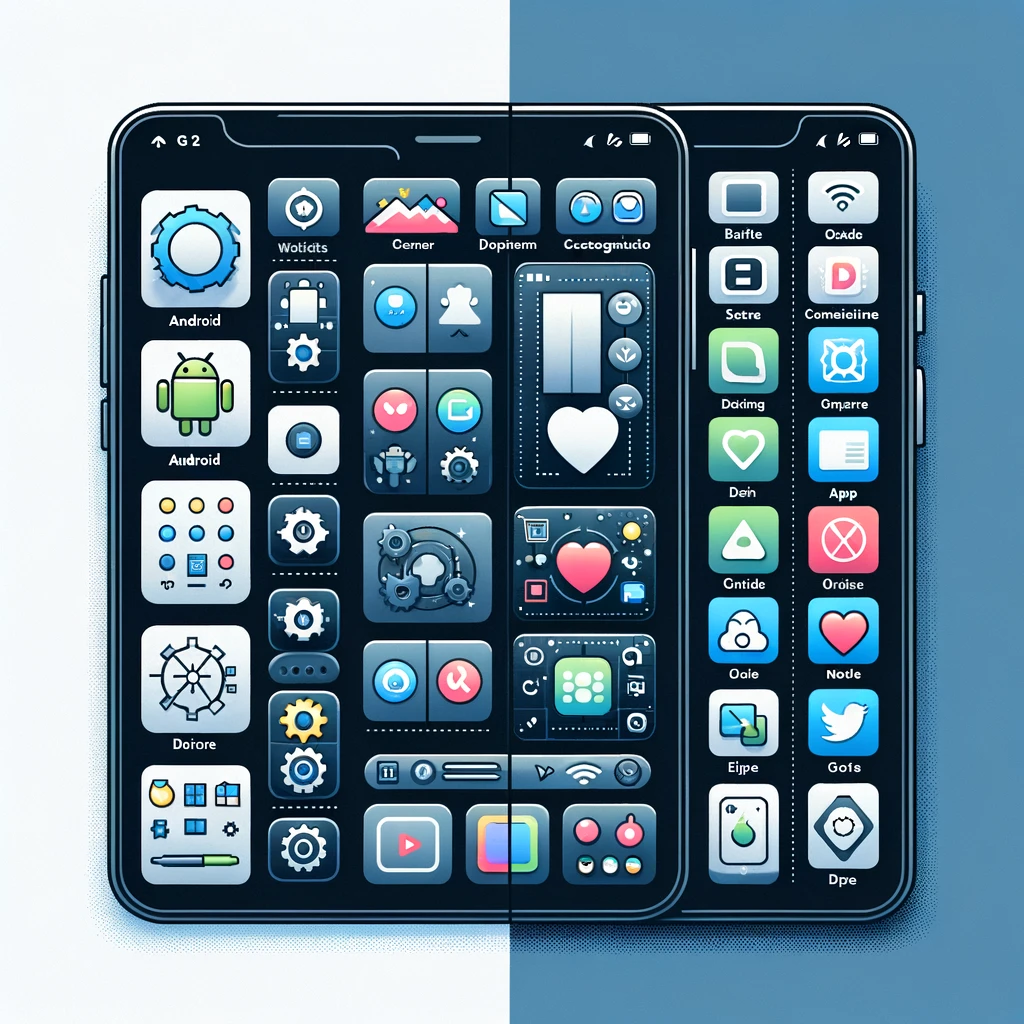
From user interface to app availability, we’ll dissect every aspect, providing you with valuable insights to make an informed choice that suits your needs. Whether you’re a dedicated Apple aficionado or a die-hard Android enthusiast, this exploration is tailored for everyone, including iOS users, seeking clarity amidst the ongoing debate.
Stay tuned as we unravel the mysteries behind these two giants of mobile technology and equip you with the knowledge needed to navigate through their distinct ecosystems seamlessly.
Contents
- 1 Introduction to the Android vs iOS Debate
- 2 Customization and User Experience
- 3 Android vs iOS: Device Variety and Options
- 4 Android vs iOS: Affordability and Value for Money
- 5 Android vs iOS: Operating System Flexibility and Updates
- 6 Android vs iOS App Diversity and Availability
- 7 Integration with Other Devices
- 8 Android vs iOS: Android’s Innovations and Technology Leadership
- 9 Android vs iOS Security and Privacy Features
- 10 Android vs iOS Global Market Share and Popularity
- 11 Final Remarks on the Android vs iOS Debate
- 12 Frequently Asked Questions about Android vs iOS
- 12.1 Is Android or iOS better for customization and user experience?
- 12.2 Which operating system offers more device variety and options?
- 12.3 Are Android devices generally more affordable than iOS devices?
- 12.4 How does Android vs iOS differ in terms of app diversity and availability?
- 12.5 Which platform excels in integration with other devices?
- 12.6 Where can I learn more about the latest tech trends?
Introduction to the Android vs iOS Debate
Brief Overview of the Android vs iOS Platforms
Android, developed by Google, is an open-source platform. This means that its source code is freely available for modification and distribution. As a result, it offers a high level of customization to users. On the other hand, iOS, developed by Apple, operates within a closed ecosystem. This means that it is exclusively designed to work with Apple’s hardware and software.
One key difference between the two platforms lies in their approach to app development. While both platforms have access to a wide range of applications, Android’s open nature allows for greater flexibility in app development. In contrast, iOS has stricter guidelines for app developers due to its closed ecosystem.
Android vs iOS: Historical Context of Both Operating Systems
The historical context of these operating systems provides insight into their evolution over time. Android was released in 2008 and later acquired by Google. Its availability on devices from various manufacturers has contributed to its widespread adoption across the globe. Conversely, iOS was introduced in 2007 as an exclusive operating system for Apple devices.
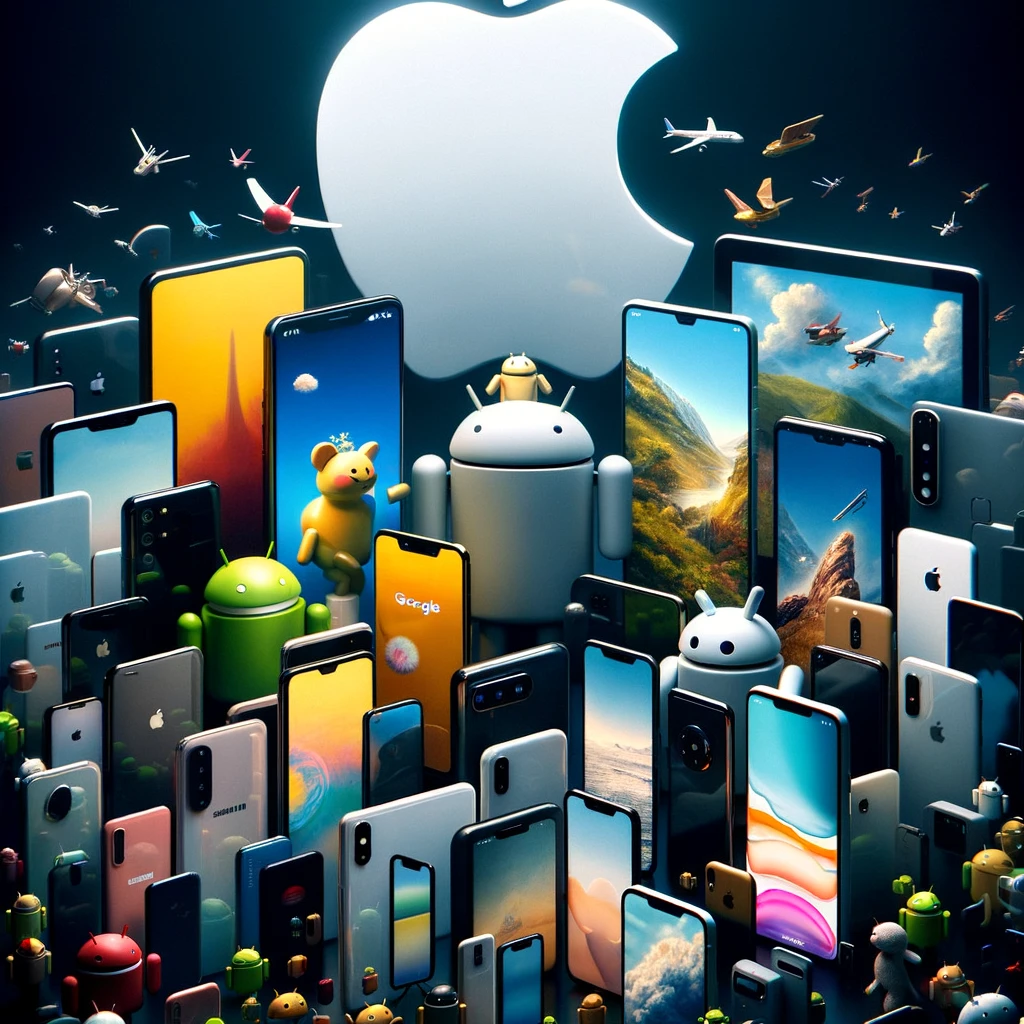
When considering the historical context, it becomes evident that both platforms have significantly influenced each other’s development over time through competition and innovation.
Thesis Statement Emphasizing the Superiority of Android Over iOS
The thesis statement emphasizes the superiority of Android over iOS, highlighting factors such as customization options, affordability, and wider device range as key advantages offered by Android.
Customization and User Experience
Detailed comparison of customization capabilities between Android vs iOS
Android offers extensive customization options, allowing users to personalize their devices according to their preferences. Users can change the look and feel of their home screens, customize widgets, choose different app icons, and even install third-party launchers for a completely unique interface. This level of flexibility enables users to tailor their mobile experience to suit their individual tastes.
On the other hand, iOS’s closed nature limits the extent of customization available to users. While iOS does offer some degree of personalization through dynamic wallpapers and app icon rearrangement, it falls short in comparison to Android’s open ecosystem. The restrictions imposed by Apple make it challenging for users to modify core elements of the user interface beyond what is officially supported.
How Android offers a more personalized user experience
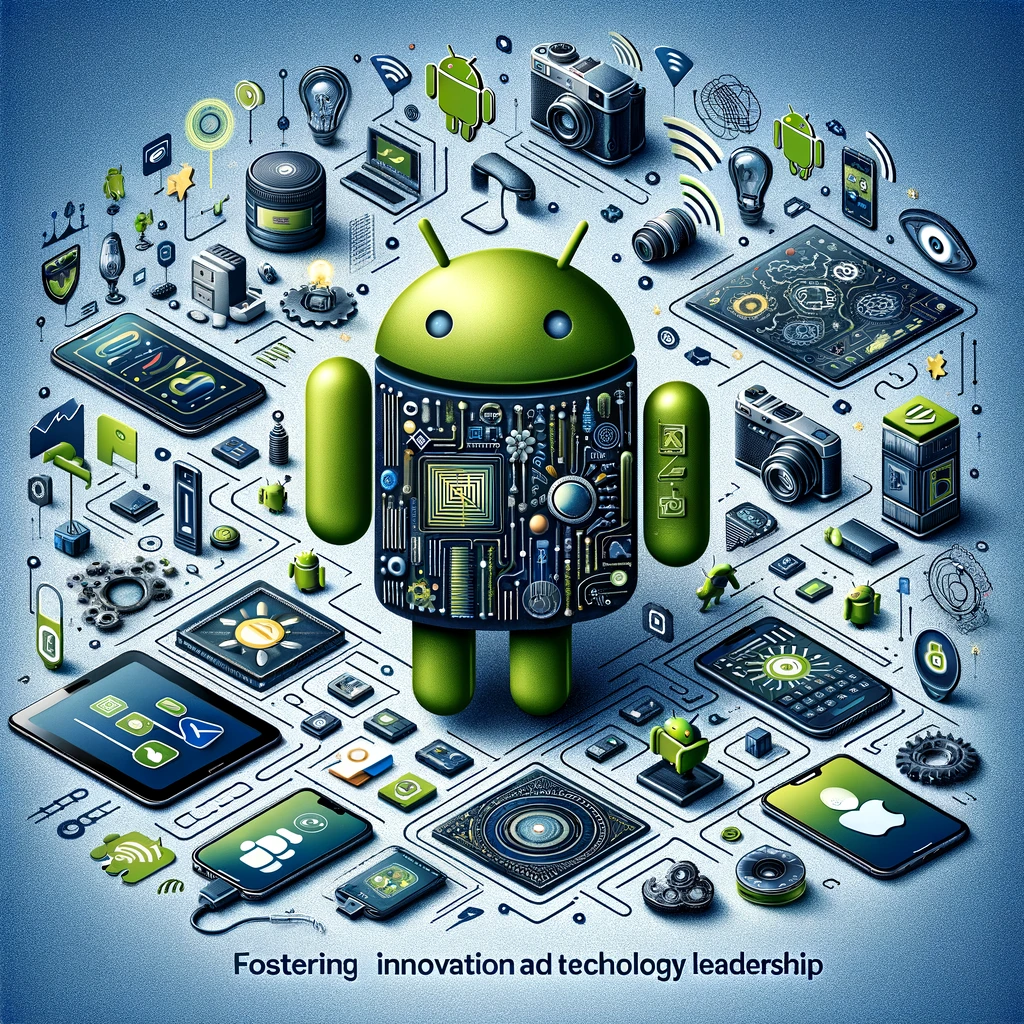
The user experience on Android is enhanced by its support for various customizable elements such as widgets, which provide quick access to information without needing to open apps. Users can install third-party launchers that alter the entire look and feel of the device’s interface, offering an unprecedented level of personalization not found in iOS.
Moreover, Android allows for user-defined defaults for apps and tasks. For example, if a user prefers using a specific web browser over others, they can set it as the default browser for all web-related activities. This level of control over default applications contributes significantly to creating a tailored mobile experience based on individual preferences.
Case studies or examples of unique customizations possible on Android
In real-world scenarios, numerous examples illustrate how Android facilitates unique customizations that cater directly to individual tastes. Personalized home screen layouts are one such instance where users have complete freedom in arranging app icons, widgets, and shortcuts exactly as they desire.
Furthermore,third-party app integration plays a crucial role in enhancing functionality beyond what stock applications offer on both platforms; however, Android excels at providing greater scope for integrating third-party apps into its ecosystem due largely because its open-source nature encourages developers from around the world contribute innovative solutions that further enrichen mobile experiences.
Android vs iOS: Device Variety and Options
Android offers a wide range of choices from various manufacturers. Unlike iOS, which is exclusive to Apple devices, Android runs on phones made by different companies such as Samsung, Huawei, Google, and more. This means that users have access to a diverse selection of hardware when choosing an Android device. Android’s diverse brand and model offerings provide consumers with an array of choices in terms of design, features, and price points.
For instance, individuals seeking high-end smartphones can opt for flagship models like the Samsung Galaxy S series or Google Pixel phones. On the other hand, those looking for budget-friendly options can choose from an extensive range of affordable Android devices offered by different manufacturers.
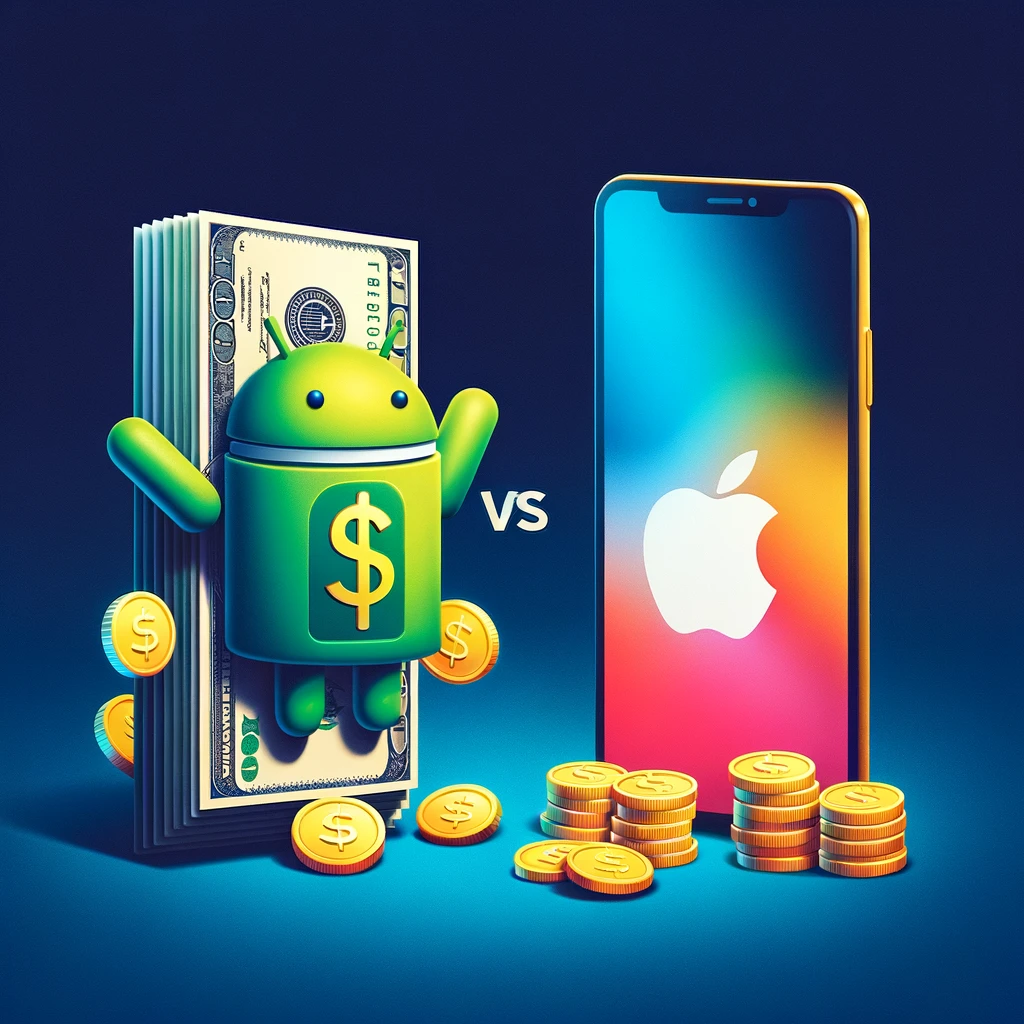
In contrast to iOS’ limited device options within the Apple ecosystem, this availability allows Android to cater to a wider market segment. With varied price points and features across multiple brands and models running on Android OS, the platform becomes accessible across different demographics. This inclusivity ensures that there are suitable devices for individuals with varying preferences and financial capacities.
The broad spectrum of choices provided by Android has a significant impact on user choice and satisfaction. By offering tailored options for specific user needs – whether it’s camera quality, battery life, or gaming performance – users have the freedom to select devices that align with their individual requirements. Moreover,Android grants users the liberty to choose preferred form factors such as screen size or physical dimensions based on personal preferences.
This level of flexibility contributes greatly towards enhancing user satisfaction as individuals can find devices that perfectly match their unique needs without being restricted by limited hardware options.
Android vs iOS: Affordability and Value for Money
Comparative analysis of the pricing of Android and iOS devices
Both Android and iOS offer a wide range of options, from budget-friendly devices to premium ones. However, iOS is known for its premium pricing, often seen as a hallmark of Apple’s devices. On the other hand, Android provides a diverse spectrum of devices that cater to different spending behaviors.
For example, while an iPhone may be considered high-quality, it comes at a cost that may not align with everyone’s spending behavior. In contrast, Android offers smartphones with varying levels of quality at different price points. This means that individuals can choose an Android device based on their ability to spend without compromising too much on quality.
Another point to consider is the long-term value offered by each platform. While iOS devices are undoubtedly well-built and have strong resale value due to their perceived quality, they also come with a higher upfront cost compared to many Android alternatives.
Exploration of why Android provides better value for money
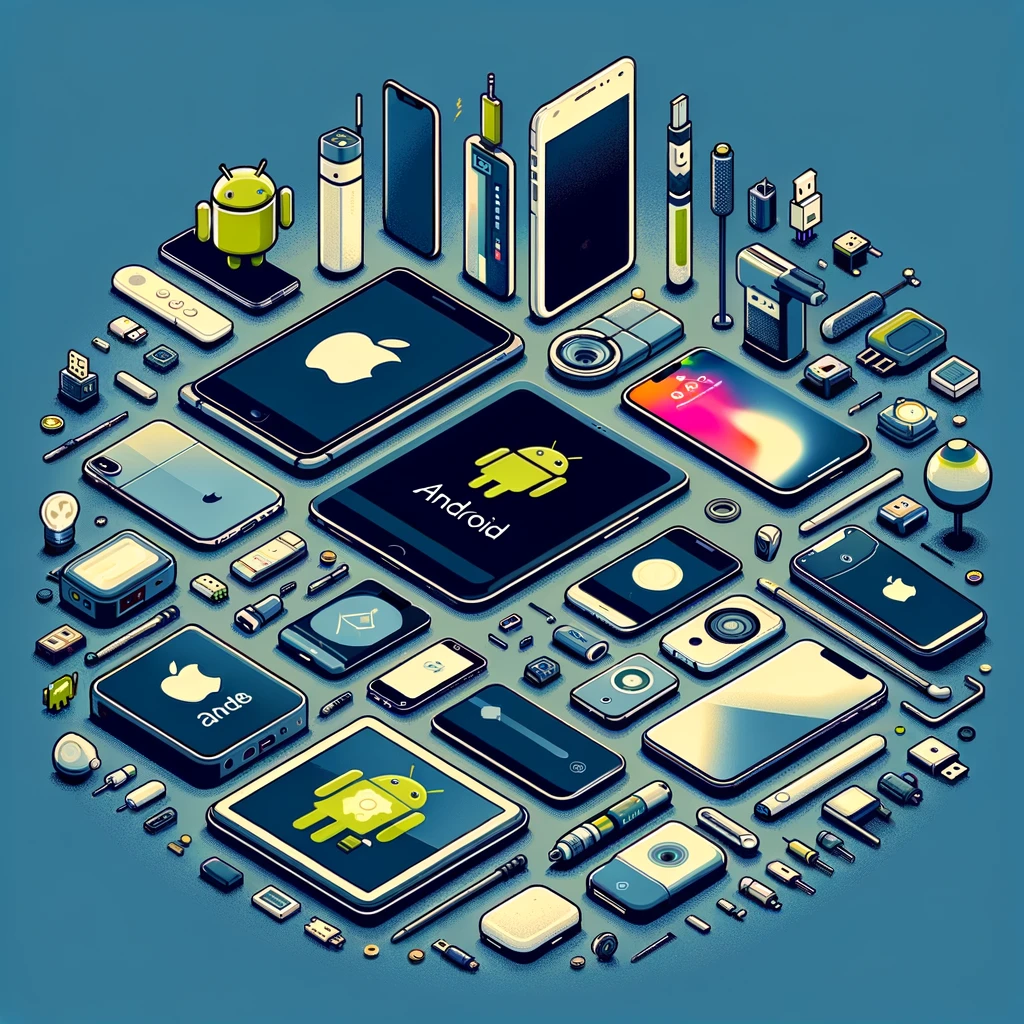
One key reason why Android is often seen as providing better value for money is the availability of feature-rich devices at competitive prices. These smartphones offer similar abilities as their iOS counterparts but at a more accessible cost. This makes them appealing options for those looking for quality without overspending.
Moreover, many users find that Android devices enhance cost-effectiveness through long-term use. With regular updates and improvements in hardware and software across various brands offering android phones like Samsung or Google Pixel; these phones continue performing well over time despite being more affordable than iPhones. Additionally,android’s open-source nature allows manufacturers flexibility in producing budget-friendly options while still maintaining decent quality standards.
Android vs iOS: Operating System Flexibility and Updates
The approach to updates and flexibility significantly impacts user experience. Android’s strength lies in its diverse ecosystem, allowing timely updates across various manufacturers. For instance, Google provides regular software upgrades for its Pixel devices, while other manufacturers like Samsung and OnePlus also offer prompt updates to their users.
Moreover, Android users benefit from the flexibility of choosing update schedules that align with their preferences. This means that they can decide when to install system updates based on their convenience or data availability. Such flexibility empowers users by giving them control over their device’s software management.
Conversely, iOS follows a different path with its update mechanism by providing unified updates across all Apple devices simultaneously. This centralized approach ensures that all compatible devices receive the latest version of iOS promptly without any delays or fragmentation issues commonly seen in the Android ecosystem.
However, this centralized control also results in limited flexibility for iOS users regarding update schedules and customization options compared to Android users.
The impact of these differences is evident in terms of user experience and device longevity. On one hand, extended software support for older devices is a hallmark of Android, ensuring that even older smartphones continue to receive security patches and feature updates for an extended period.
On the other hand, swift updates ensure consistent performance on iOS devices throughout their lifecycle due to Apple’s tight control over both hardware and software integration.
Android vs iOS App Diversity and Availability
The Google Play Store boasts an extensive app library, offering a diverse range of applications catering to various interests and needs. Users can access a wide array of apps, including productivity tools, entertainment options, educational resources, and more. This diversity is one of the key attractions for Android users as it ensures that there is something for everyone on the platform.
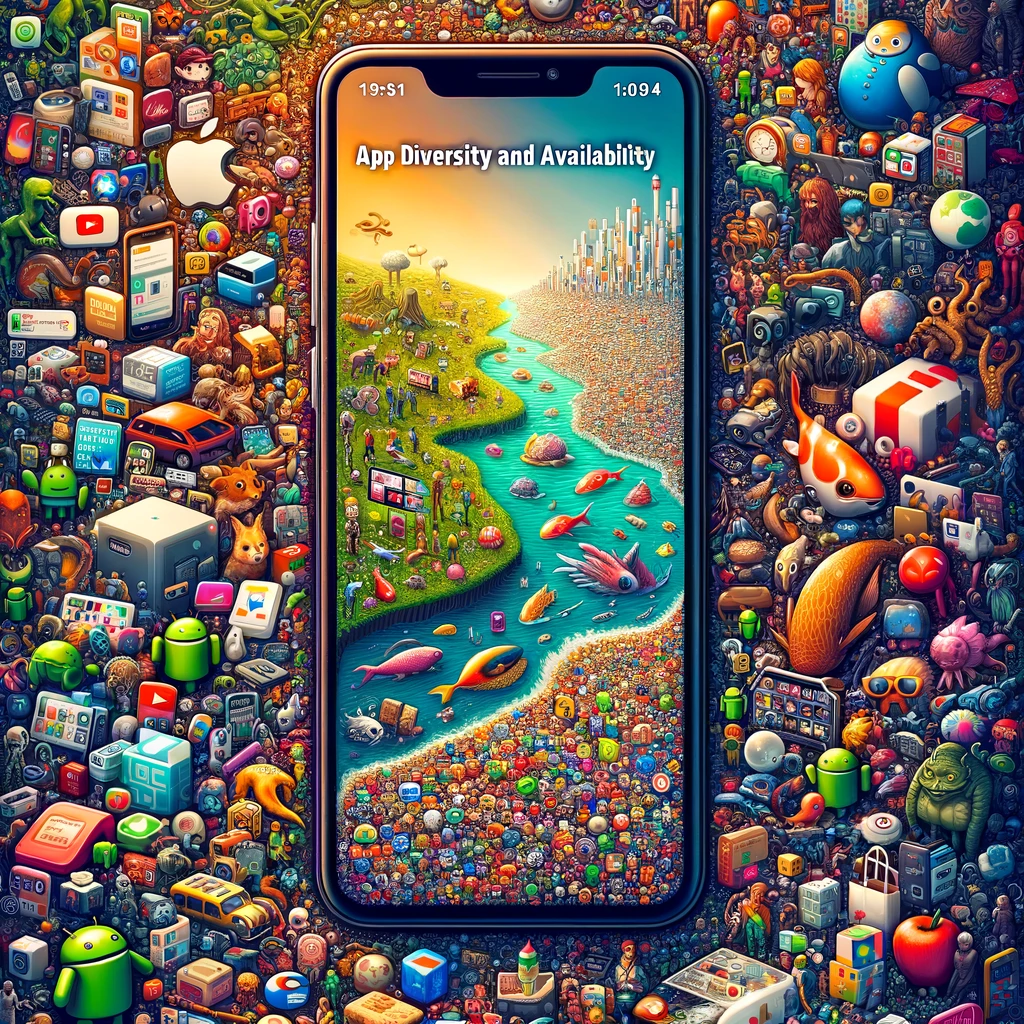
In contrast, the Apple App Store takes a curated approach with stringent guidelines governing the selection of apps available to users. While this results in a smaller overall app library compared to Google Play Store, it ensures that every app meets certain quality standards and security protocols. As a result, Apple device users can expect a more refined and carefully vetted collection of applications.
When discussing Android’s app variety and availability specifically, it’s important to note that the platform offers not only mainstream apps but also exclusive titles and games tailored specifically for Android devices. This exclusivity adds allure for users who seek unique experiences not found on other operating systems. Android’s openness has led to the proliferation of third-party app stores such as Amazon Appstore or Samsung Galaxy Store. These alternative sources further expand the choices available to Android users beyond the official Google Play Store.
Furthermore,Android’s less restrictive approach towards its app market benefits users by providing them with greater freedom in installing applications from various sources. Unlike iOS which limits installations solely to its official App Store unless jailbroken (a process allowing unauthorized software installation), Android allows sideloading apps from third-party websites or platforms outside Google Play Store. This flexibility empowers users with more control over their device’s content while also presenting opportunities for developers to innovate without being bound by strict regulations imposed by centralized authorities.
Integration with Other Devices
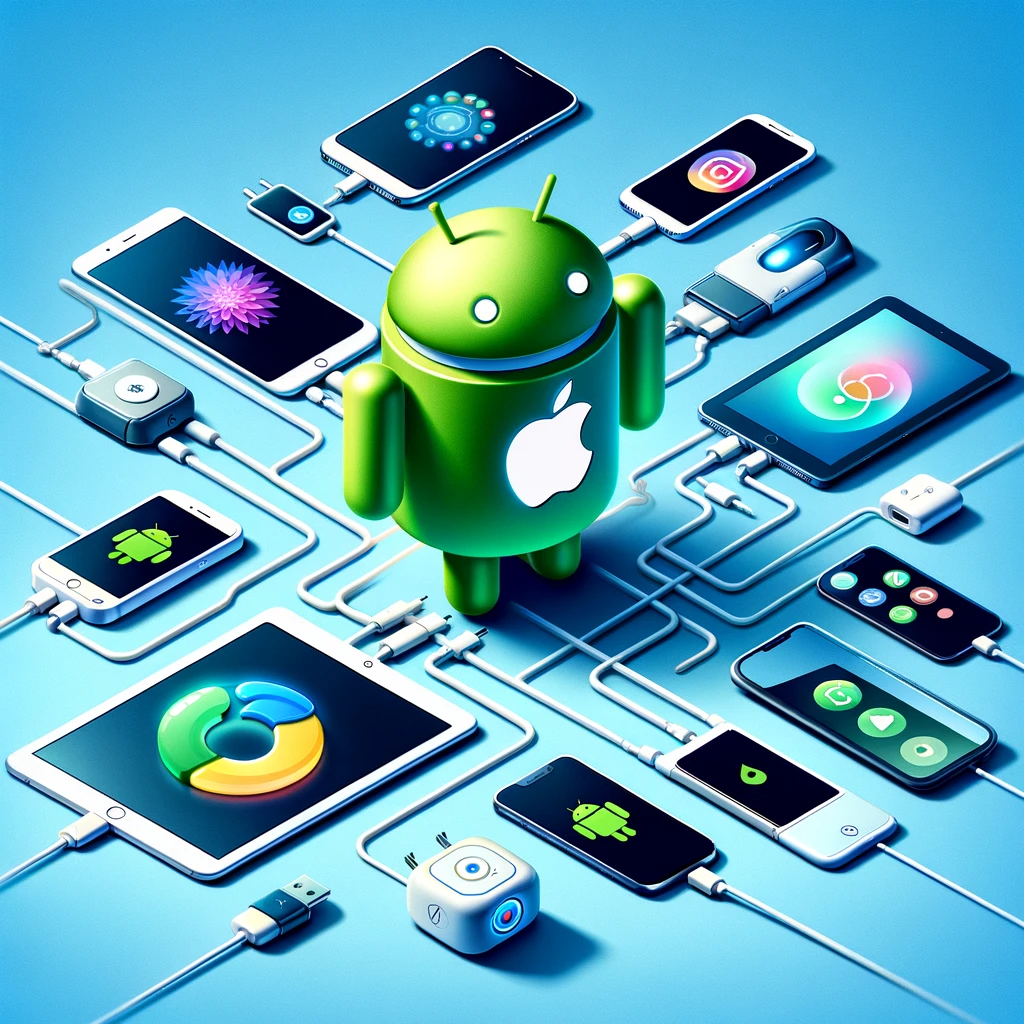
Its seamless connectivity with IoT devices is a significant advantage. For instance, Android smartphones can easily connect and control various smart home devices such as thermostats, lights, and security cameras. This means that users can manage their entire smart home ecosystem directly from their Android device without any compatibility issues.
Moreover, Android’s compatibility with non-Apple hardware and software offers users the flexibility to choose from a wide range of devices and accessories. Unlike iOS, which is exclusive to Apple products, Android allows users to connect their smartphones to various peripherals such as printers, external storage drives via USB, or other mobile devices regardless of the manufacturer. This is a key realm of discussion when we bring up the debates surrounding Android vs iOS!
On the other hand, iOS boasts tight integration within the Apple product lineup. This means that if you own multiple Apple products like an iPhone, iPad, Macbook, or Apple Watch, they seamlessly work together in harmony. For example: You can start writing an email on your iPhone and finish it on your MacBook without any interruptions due to the deep integration between these devices.
However,iOS’s limited compatibility beyond the Apple ecosystem could be seen as a drawback for some users who prefer diversity in choosing compatible accessories and peripherals. While there are numerous third-party accessories available for iOS devices such as headphones or cases;.
In real-world scenarios,Android’s broader compatibility has significant implications for everyday life. The interconnectivity with smart home devices allows users not only convenience but also enhanced security through remote monitoring capabilities using their Android smartphone. Additionally, the flexibility in choosing compatible accessories and peripherals provides cost-effective options for consumers while ensuring they are not locked into specific brands or manufacturers when expanding their device ecosystem.
Android vs iOS: Android’s Innovations and Technology Leadership
Overview of key technological advancements pioneered by Android
Android has been at the forefront of introducing several groundbreaking technologies in the mobile industry. For instance, it was one of the first platforms to incorporate NFC (Near Field Communication) for mobile payments. This innovation revolutionized how users make transactions, allowing them to simply tap their devices for seamless payments.
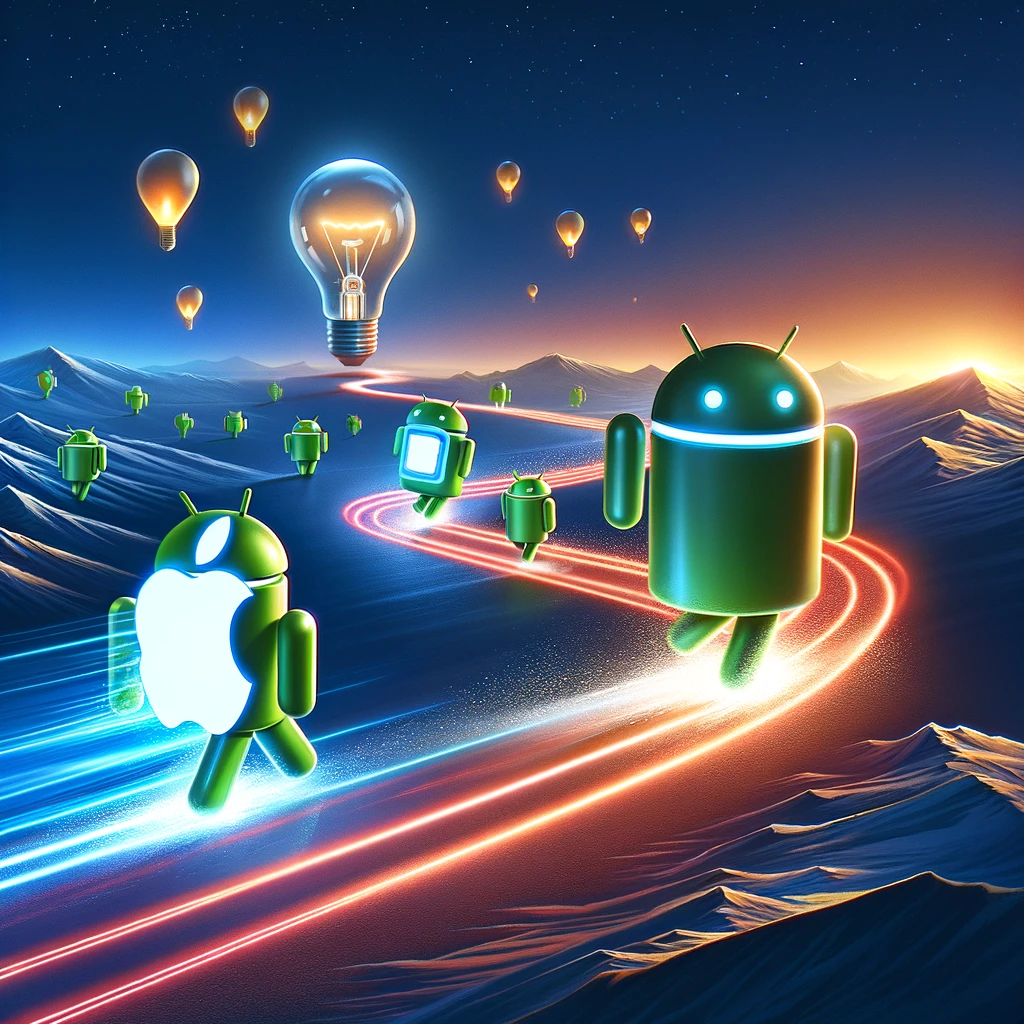
Android played a pivotal role in popularizing wireless charging technology, enabling users to charge their devices without the hassle of cords and cables. The introduction of NFC for mobile payments and early adoption of wireless charging technology by Android have significantly influenced modern smartphone capabilities. These innovations have not only enhanced user convenience but also paved the way for further developments in contactless transactions and device charging methods across various industries.
Android’s open-source nature plays a crucial role in fostering innovation within its ecosystem. By encouraging collaborative development through community involvement, Android allows developers from around the world to contribute to its growth and improvement continually. Moreover, this open approach has led to the creation of custom ROMs that offer unique features beyond the stock operating system.
The collaborative spirit within the Android community has resulted in an array of custom ROMs that cater to diverse user preferences. These customized versions often introduce innovative functionalities that may later influence mainstream operating systems like iOS.
Examples where Android has led the way in new features before iOS
Android’s proactive approach is evident through its implementation of multitasking capabilities at an early stage compared to iOS. The platform recognized users’ need for efficient multitasking and incorporated this feature into its system ahead of other competitors.
Moreover, another notable example showcasing Android’s leadership is its pioneering implementation of split-screen multitasking functionality on smartphones and tablets. This advancement allowed users to simultaneously run two apps side by side, enhancing productivity on mobile devices.
Android vs iOS Security and Privacy Features
Discussion of Android’s security measures and privacy options
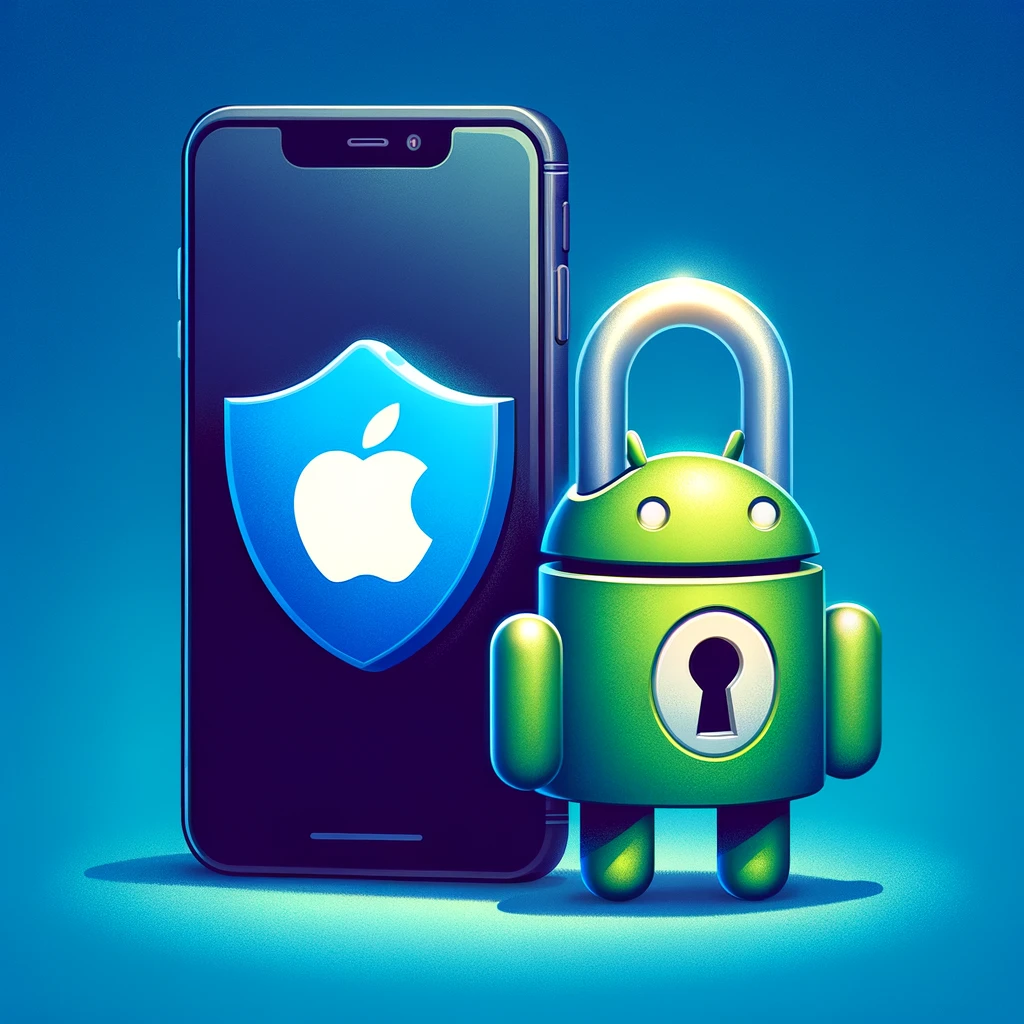
Android offers robust protection through Google Play Protect. This feature scans apps for malware before and after installation, providing an added layer of defense against potential threats. Android users have granular control over permission requests, allowing them to decide which permissions an app can access, such as contacts, location, camera, or microphone.
This level of control empowers users to safeguard their personal data effectively. Android also provides various cloud services that allow users to back up their data securely. Furthermore, the platform ensures the encryption of sensitive information like text messages and calendar events stored on the device or transmitted between devices using secure protocols. These comprehensive security measures contribute significantly to protecting user data from unauthorized access.
Comparison with iOS security features
In comparison, iOS places a strong emphasis on data encryption across its ecosystem. Data stored in iCloud is encrypted both in transit and at rest, ensuring that even Apple cannot access this information without the user’s credentials. Moreover, iOS adopts a “walled garden” approach by strictly regulating app distribution through the App Store. This limits the risk of malware infiltration into the operating system.
iOS also offers robust privacy features by providing clear visibility into how apps use permissions such as accessing photos or tracking location data. Users are prompted with permission requests when an app attempts to access certain functionalities for added transparency and control over their personal information.
Debunking myths about Android’s security vulnerabilities
Contrary to common misconceptions about Android’s security vulnerabilities due to its open-source nature, Google consistently releases regular security patches addressing potential threats promptly. These updates ensure that devices remain protected against evolving cyber risks.
Moreover, clarifying misunderstandings regarding malware prevalence on Android is crucial; while some instances occur due to third-party app sources outside Google Play Store or sideloading apps from unverified sources—users can mitigate these risks by exercising caution when downloading apps outside official channels.
Analysis of Android’s Dominance in the Global Market
Android holds a commanding market share across regions, with many companies producing devices running on this operating system. In fact, it boasts an impressive 85% market share globally. This dominance is particularly evident in emerging markets where affordability plays a crucial role in purchasing decisions.
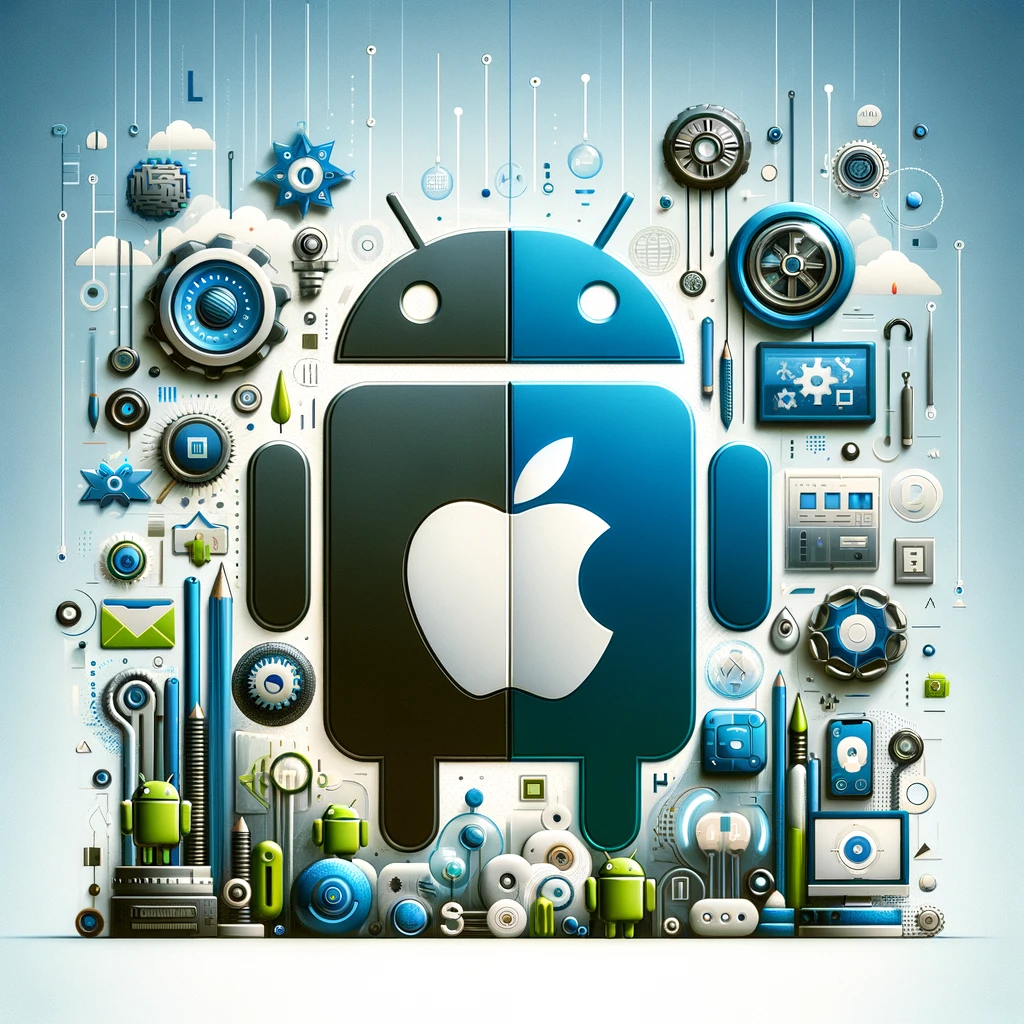
For example, in countries like India and Brazil, Android has become the go-to choice for consumers due to its wide range of affordable options.
Furthermore, Android’s appeal extends beyond just price points. It caters to a diverse consumer base by offering various device options that suit different needs and preferences. This inclusivity has been pivotal in solidifying its position as the leading mobile operating system worldwide.
Insights into User Demographics and Preferences
One key aspect contributing to Android’s popularity is its strong appeal among tech enthusiasts and tinkerers who value customization and flexibility. The open-source nature of Android allows users to modify their smartphones extensively, from changing the user interface to installing custom software.
Moreover, another significant factor driving Android’s widespread adoption is its attraction for those seeking diverse device options. Unlike iOS which exclusively runs on Apple devices, Android can be found on numerous smartphones manufactured by different companies such as Samsung, Huawei, Xiaomi, and more.
Reasons Behind Android’s Widespread Popularity
The primary reason behind Android’s global success lies in its ability to cater to diverse consumer needs effectively. Whether someone prioritizes camera quality or battery life or simply desires a budget-friendly smartphone without compromising performance, there are plenty of choices available within the vast ecosystem of Android devices.
Additionally,Affordability plays a pivotal role in driving mass adoption globally; many people around the world simply cannot afford high-end flagship phones but still want access to modern technology. With countless mid-range and budget-friendly options running on Android, individuals from all walks of life can enjoy the benefits of owning a smartphone without breaking the bank.
Final Remarks on the Android vs iOS Debate
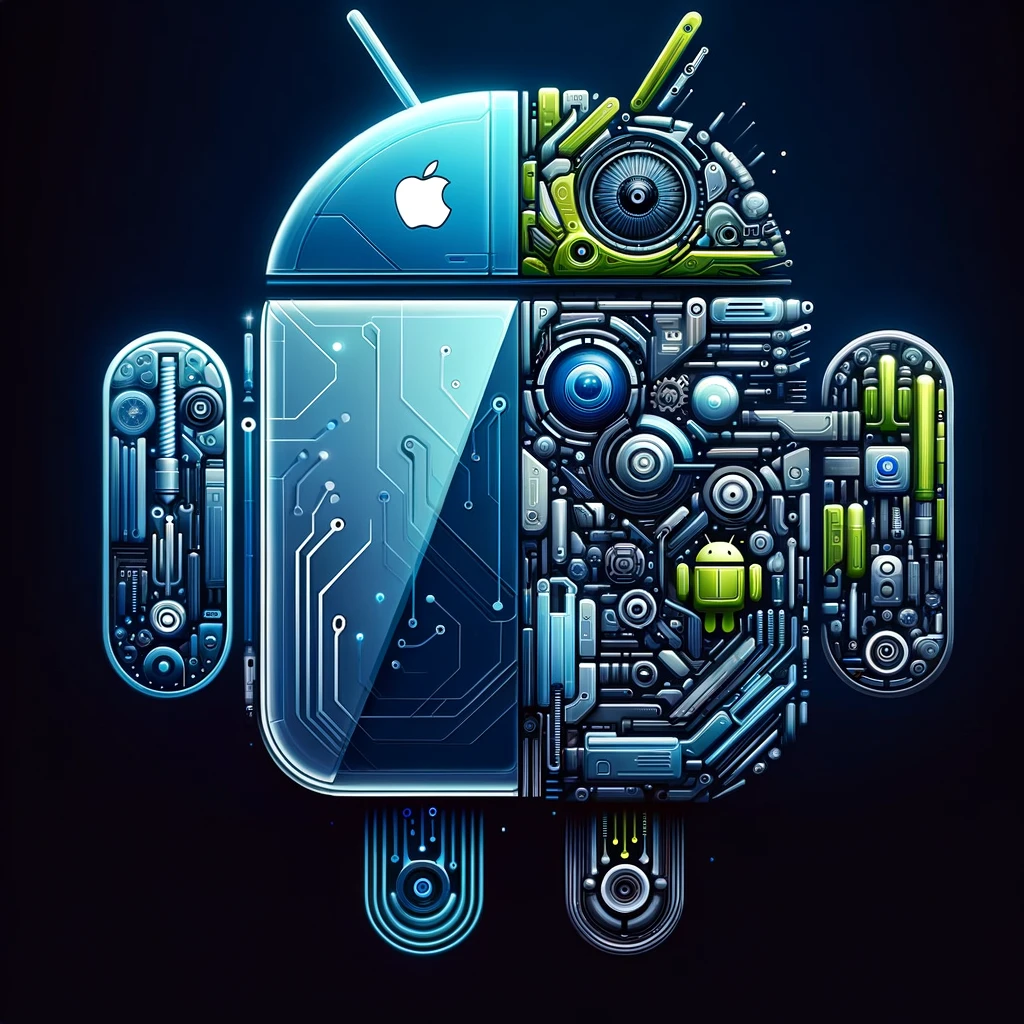
You’ve now seen the ins and outs of the Android vs iOS debate. Both operating systems have their strengths and weaknesses, and the decision ultimately boils down to your personal preferences and needs. Whether you prioritize customization, device variety, affordability, app diversity, or security features, both Android and iOS offer unique benefits. So, when choosing between them, consider what matters most to you and make an informed decision based on your lifestyle and priorities.
Now that you’re equipped with a deeper understanding of the Android vs iOS landscape, it’s time to weigh your options and make the choice that aligns best with your preferences. Whether you’re a tech enthusiast or a casual user, your smartphone’s operating system plays a significant role in your daily life. So, take the time to evaluate what matters most to you and choose the platform that will enhance your digital experience. Happy choosing!
Frequently Asked Questions about Android vs iOS
Is Android or iOS better for customization and user experience?
Android offers extensive customization options, allowing users to personalize their devices with widgets, custom launchers, and more. On the other hand, iOS provides a more streamlined and consistent user experience across its devices.
Which operating system offers more device variety and options?
Android boasts a wide range of devices from various manufacturers, offering diverse designs, features, and price points. In contrast, iOS is limited to Apple’s exclusive lineup of iPhones and iPads.
Are Android devices generally more affordable than iOS devices?
Yes, Android smartphones are available at various price points catering to different budget ranges. In comparison, Apple’s iOS devices tend to be positioned in the premium segment with fewer budget-friendly options.
How does Android vs iOS differ in terms of app diversity and availability?
The Google Play Store on Android offers a vast array of apps spanning different categories including utilities, productivity tools, games, etc. Meanwhile, the App Store on iOS is known for its curated selection of high-quality apps optimized for Apple’s ecosystem.
Which platform excels in integration with other devices?
iOS seamlessly integrates with other Apple products through features like Handoff, AirDrop, iCloud sync which offer a cohesive experience across iPhone,iPad,and Mac. While some level of integration is possible with Android using Google services,it may not match the seamless connectivity offered by Apple ecosystem.
Where can I learn more about the latest tech trends?
You can check out Tech with Bobbie for all the latest tech trends ranging from hardware and software, such as tech gadgets and accessories, devices and operating systems, as well as revolutionary and disruptive technologies such cryptocurrencies, decentralized finance, and blockchain!
